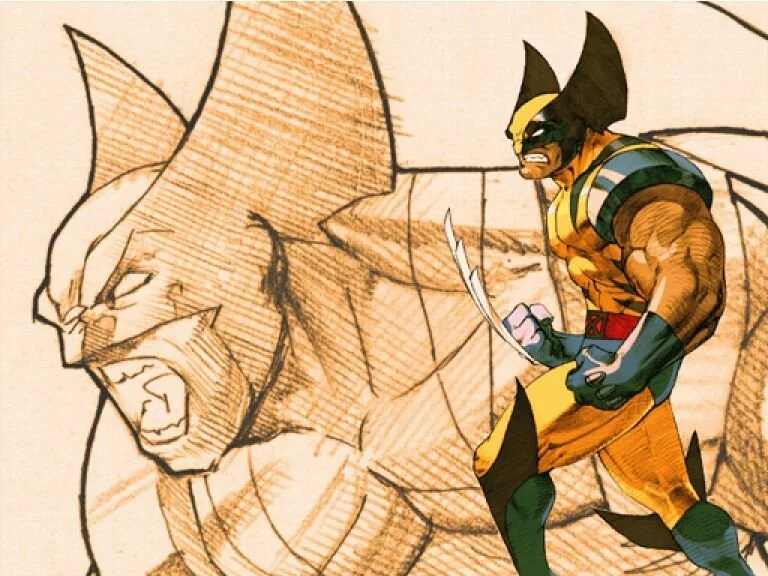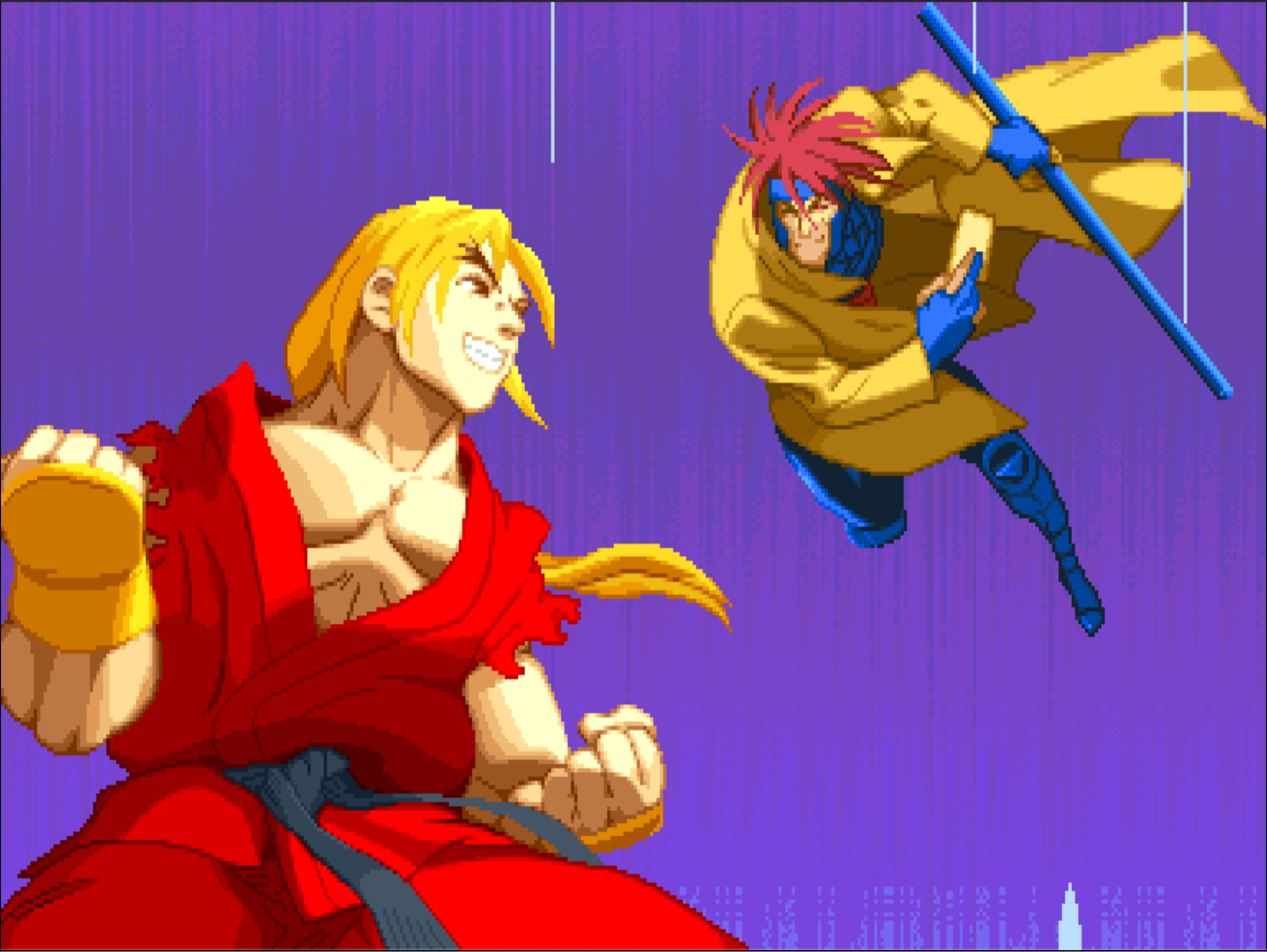Character in Fighting Games - Part II: More Than Functions
Way back in 2018 I wrote an article titled “The Importance of Story & Character in Fighting Games” in which I argued that good Character Design was the probably most important factor for drawing new players into a fighting game. Along those lines, I extended the notion of important elements to include things like story, setting, and the game’s visual style of course, but the anchor connecting these elements—the key to a fighting game’s hook, as I saw it—was still rock solid Character Design.
That might seem like a weird topic to write about. Why ramble about fighting games at all? Well, my thinking on this ran counter to the conventional wisdom of the Fighting Game Community (FGC), which often downplays the importance of characters themselves and elevates the importance of unique gameplay mechanics.
From the typical FGC perspective, specific characters don’t mean much at all. You could swap out one character for someone completely different, and—as long as the new character has all the same moves and mechanics—it will be just as good. The character itself is meaningless, just a collection of moves and stats. And, you know, I think that idea is silly and quite obviously wrong.
Since we’re starting to get a little nebulous here, let’s look at some specific examples. In fact, let’s start with the example that may have started this whole debate in the first place….
That Jim Lee art is just the coolest stuff ever.
At E3 2017, during the lead up to the release of Marvel vs. Capcom Infinite, producer Michael Evans and associate producer Peter “ComboFiend” Rosas spoke to Gamespot about the latest and much-hyped entry in the Marvel Vs series. The Gamespot interviewer asked about a potentially touchy subject, the fact that fan-favorite characters had been left out of the game’s roster. The answer the Capcom producers gave would become infamous…
There was recently a leak about the characters, and people picked up on the fact that a lot of classic characters aren't there, specifically the X-Men characters like Magneto and Sentinel. How do you guys feel about people being hung up on that?
Peter Rosas: If you were to actually think about it, these characters are just functions. They're just doing things. Magneto, case and point, is a favorite because he has eight-way dash and he's really fast, right? So our more technical players, all they want to do is triangle jump and that kind of stuff. Well guess what, Nova can do the same thing, Captain Marvel can do the same thing. Ultron can do the same thing. Go ahead and try them out.
It's just the function that people are associating with the character, and there's no shortage of that…somebody who has associated themselves with Magneto wouldn't be lost coming into this title.
Evans added that returning characters had changed from previous iterations as well, meaning they would play differently than they had before. He also said that when selecting characters, they consider gameplay “first and foremost”, where a character would fit into the story second (lol, really?), and then a character’s popularity was only considered third. Ok, sure….
Now, I don’t want to completely trash talk Rosas and Evans here, because I feel like they had a pretty daunting task on their hands. How does one promote a new Marvel Vs game that manages to leave out everyone’s favorite characters? Obviously these guys weren’t allowed to say the thing everyone knew to be true: Capcom couldn’t use these characters because Marvel wouldn’t let them.
Marvel’s parent company, Disney, did not own the film rights to the X-Men or Fantastic Four (Dr. Doom) at the time. Without movies to cross-promote, they were never going to include X-Men or FF characters in any project. In fact, during this time Marvel aggressively sidelined the X-Men in the comics as well. This was a wild move, as it effectively kneecapped the most successful comic book property in history, seemingly out of spite.
They didn’t even put Wolverine in this game! MvC2 had two Wolverines and Infinite didn’t even get one!
So put in a difficult spot, Rosas and Evans came up with a reasonable argument for why players should play MvC Infinite, despite its roster lacking the beloved merry mutants. It was essentially this: Fighting game characters are just a collection of functions; the character is immaterial. What matters are the things a fighting game character can do, not the character itself. It was a reasonable argument that wouldn’t ruffle any feathers with their corporate bosses. It was also complete horse$#*%.
After this interview came out, arguments sprang up across the internet debating the validity of the “characters are just functions” idea. Some players vehemently defended the “functions” take, while others were more dubious. It was an interesting topic for fighting game aficionados to discuss, and the idea quickly become memetic. Just to reiterate, I couldn’t disagree with this notion more strongly. To me, it is entirely backwards.
Case in point, Magneto—he’s a favorite because he has an eight-way dash and he's really fast, right? NO! Of course not! He’s a fan favorite because he’s muthaf#^*ing Magneto. He’s the X-Men villain who’s so damn cool, they’ve made him into an antihero—and leader of the X-Men—on multiple occasions. He’s a mainstay of all X-Men adaptations, whether on the big or small screen. He has genuine gravitas drawing from his decades of history in comics and other media, and everybody loves him.
The replacements, on the other hand, don’t have anywhere near the same level of cultural cachet. Nova is a space cop who nobody cares about. Captain Marvel is cool sure, but she’s her own thing, and a completely different type of character from old Magnus. Ultron is…(zzz, snore, zzz)... Oh sorry, I was so bored, I must’ve fallen asleep just now.
The point is, Magneto rules. The draw to play a fighting game with Magneto in it isn’t to do eight-way dashes, it’s to play as Magneto. You can’t just replace him with a knockoff character, even if you give that knockoff all of the same moves and mechanics.
Fighting games aren’t like cereal; the generic version isn’t just as good.
That idea that characters don’t matter is not only ridiculous, it has been demonstratively untrue since the very beginning of the Vs Series. X-Men Vs. Street Fighter wasn’t a mindblowing crossover because of its “functions”, not in the slightest. It melted our adolescent minds because X-Men characters were battling Street Fighter characters; because our favorite fictional characters were “meeting” for the first time. Which isn’t to say that gameplay mechanics were irrelevant, but they absolutely were not the draw. Especially for newer players, the hype came from its incredible roster of recognizable characters.
Now there’s probably no reason to go on explaining how just flat-out incorrect this “characters are just functions” argument is. I mean, surely Rosas and Evans didn’t even believe the nonsense when they said it in the Gamespot interview. However, I’d like to continue beating this hobby horse a little bit further, just be sure it is truly dead. (Was that a mixed metaphor?)
Gimme Gambit, or give me death.
If fighting game characters are just functions, why do people care about—and vehemently demand getting—returning characters in their favorite series. Why wasn’t Remy in 3rd Strike just as popular as Guile had been since he had the same recognizable special moves? Why would Tekken players demand Eddie Gordo when Christie is already in there? Heck, why do Ryu and Ken have to appear in every single Street Fighter title?
Or perhaps a better example: Why do people care about guest characters? If a character is really just a meaningless collection of functions then guest characters shouldn’t be a thing. And yet, they are a huge deal in fighting games today.
Terry Bogard, the current king of guest character appearances.
Any developer could simply copy the moves of some other game’s fighter, give their knockoff a new name and a legally distinct look, and put them into their own game. If it’s just as good without the genuine article, why go through the hassle of licensing another company’s property?
It’s because people want the actual character first and foremost. They always have. Gameplay mechanics, special moves, functions, etc., that stuff is undoubtably important, sure. But that comes after the appeal of the characters themselves.
If you ask me, character comes first. Functions are secondary at best.







